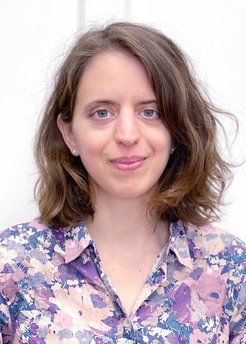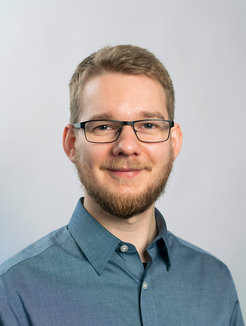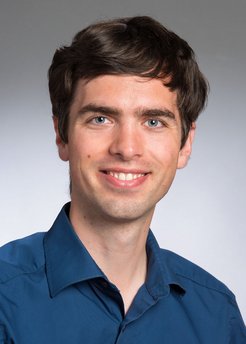Young researchers from Göttingen receive Otto Hahn Medals and Otto Hahn Award
Mirna Elizabeta Kramar from the MPI for Dynamics and Self-Organization and Jascha Lau & Michael Weber from the Max Planck Institute for Multidisciplinary Sciences receive the Otto Hahn Medal for outstanding achievements in their dissertations. Lau is additionally honored with the Otto Hahn Award for the special quality of his research. The Max Planck Society presented the awards at its annual meeting on June 22.
Remembering without a brain

To store and retrieve memories, higher living beings use their brains. However, organisms without a nervous system are also able to encode memories. In her doctoral thesis, Mirna Elizabeta Kramar investigated this ability of the single-celled organism Physarum polycephalum. Combining a theoretical and experimental approach, she found that this simple organism uses tubular structures of different sizes within its network-like body to store information about the environment. Multiple memories can be overlaid and help to make further decisions. Despite its very simple build, the organism can thus also cope with a complex environment. The research results contribute to a deeper understanding of memory processes in living systems and the discovered mechanism could inspire application in design of robots.
Kramar studied chemistry at the University of Zagreb (Croatia) and biophysics at the Technical University in Dresden. She then joined the Max Planck Institute for Dynamics and Self-Organization in Göttingen, where she completed her PhD in 2020. Currently, Kramar is a postdoctoral researcher at the Institut Curie in Paris, France, where she investigates the differences in communication ability between healthy and cancer cells.
Transferred energy

The vibrations of individual atoms within molecules are of fundamental importance for chemical reactions. In his doctoral thesis, Jascha Lau investigated how energy is transferred between vibrating molecules. He focused primarily on a process in which carbon monoxide molecules that have been deposited on the surface of a salt crystal exchange vibrational energy. This process allows large amounts of energy to be stored in a single molecule. Moreover, in a model experiment, the chemist succeeded in specifically controlling the direction of energy transfer between different molecular layers on the crystal surface. Lau’s research results contribute to a better understanding of energy transfer between molecules and the quantum mechanical aspects of chemical reactions.
Lau studied chemistry at the University of Göttingen and spent a research period at the University of Cambridge (United Kingdom). He completed his PhD in the Department of Dynamics on Surfaces with Alec M. Wodtke at the MPI for Multidisciplinary Sciences in 2021. Currently, Lau is working as a postdoctoral researcher at the University of California, Berkeley (US). With the Otto Hahn Award, the young researcher can now establish his own research group at a Max Planck Institute of his choice.
Detailed microscopy

Fluorescence microscopy makes it possible to observe individual intracellular building blocks, interactions, and processes in detail. To do this, a beam of light excites special dyes to fluoresce. Stefan Hell received the Nobel Prize in Chemistry in 2014 for the development of a particularly high-resolution fluorescence microscopy method known as STED microscopy. During his doctorate, Michael Weber worked on advancing STED microscopy into a new method, called MINSTED. MINSTED enables researchers to precisely determine the position of a specimen’s dye molecules even under difficult imaging conditions, allowing biological structures to be studied with a previously unattainable level of detail. Thus, resolution down to the molecular size – 1 nanometer (one millionth of a millimeter) – is possible, opening up new pathways for biological and medical research.
Michael Weber studied physics at the Technical University of Munich. In 2016, the young scientist joined the then MPI for Biophysical Chemistry (MPI for Multidisciplinary Sciences since January 1, 2022) to pursue his PhD project in Stefan Hell’s Department of NanoBiophotonics. Currently, Weber continues his work in the department as a postdoctoral researcher, planning his next career steps in science.
About the Otto Hahn Prizes
Since 1978, the MPS has annually awarded the Otto Hahn Medal to young researchers for exceptional scientific achievements and outstanding doctoral theses. The aim of the prize, which is endowed with 7,500 euro, is to support junior scientists in their further university and research careers abroad. With the Otto Hahn Award, the MPS honors particularly outstanding laureates by giving them the opportunity to take over the leadership of a small research group at an MPI of their choice following their stay abroad. The award is intended to pave the way for a long-term scientific career in Germany.


